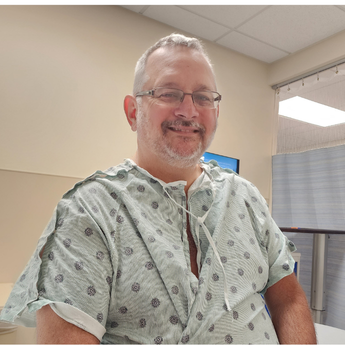Last month, we connected with Alan from ODANO, the Oncology Drug Access Navigators of Ontario, to answer a few questions about who they are and how they help patients in Ontario access life-saving medications.
What is ODANO?
ODANO is the Oncology Drug Access Navigators of Ontario. We’re a provincial group of healthcare professionals that help patients with their medications. ODANO started in 2007 with a handful of members across Ontario. Slowly, over time, more and more hospitals and cancer centres started adding Drug Access Navigators (DANs) to their teams. It was clear that this role provided much needed expertise and support to patients as well as forming a centralized point for physicians, nurses and pharmacists. The role allowed these healthcare professionals to focus on other matters.
We now have over 50 members across Ontario. Nearly every cancer centre in the province has someone now that helps patients with this role.
As Drug Access Navigators, we strive to see every patient that comes through our clinics. We can screen patients to ensure they will have no unexpected drug financial issues when they go to their pharmacy.
In addition to Ontario, Drug Access Navigators are found in BC, Alberta, Quebec, Nova Scotia, New Brunswick, Newfoundland and PEI.
What types of forms and paper work can you help patients with?
As drug access navigators, we assist patients with prior approvals to their private insurance. We also help with applications to the Trillium Drug Program for anyone under 65 years of age. In addition, we assist physicians with applications to the Exceptional Access Program, Health Canada Special Access Program as well and requisitions for cancer genetic testing.
In addition, we enroll patients with various patient support programs (PSPs). These pharmaceutical company run programs often offer financial assistance for patients. For example, a patient with a 20% copay on an expensive breast cancer drug like Ibrance (palbociclib). Pfizer has a patient program that can provide copay assistance to help with that out-of-pocket expense. These programs also often offer other services, like adherence reminders and home delivery.
Can patients directly refer themselves to you, and if so how do they contact ODANO?
Often patients are referred to a Drug Access Navigator at their hospital or cancer centre by the oncologist / hematologist. However, if you have missed seeing one, you can reach out to your closest DAN through our ODANO website and they can connect with you directly. You can do that here.
What is the ODANO website?
To help provide education to drug access navigators as well as cancer patients and their caregivers across Ontario, we launched the ODANO website. We’re at www.odano.ca
This website contains useful information to direct anyone with drug cost or access questions to the right place. It includes information on the Ontario Drug Benefit, how to contact your private insurance, a glossary of terms and much more.
Are there Drug Access Navigators outside of Ontario or outside of cancer?
Yes, in fact there are dozens of Drug Access Navigators across Canada. Even in places like BC, with a robust drug reimbursement system, there are still challenges faced by patients in affording supplementary drugs, copays, drugs that are not on the provincial formulary and drugs not approved yet in Canada. DANs are able to assist patients in all of these areas.
Also, while cancer care is the most experienced with Drug Access Navigators, mostly due to the cost of the medications, there is interest in reimbursement assistance in mental health, rare disease and other areas. Our role frees up physicians, so they can spend more time with patients and frees up patients, of any disease, so they can focus more on their treatment.







